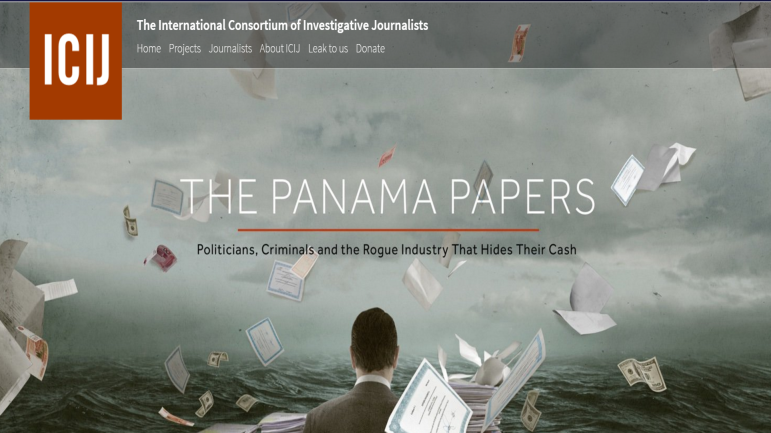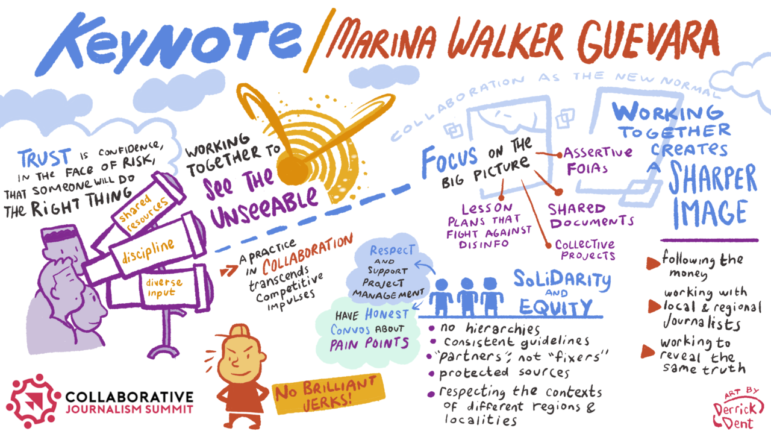

Are Panama Papers Really a Campaign Against Privacy?
We do agree with Ramon Fonseca about one thing: that “Each person has a right to privacy, whether they are a king or a beggar.”
But that’s where our commonality with co-founder of disgraced Panama law firm Mossack Fonseca ends.
Last year, a whistleblower leaked 11.5 million documents about the firm’s business brokering offshore companies, details of which were published yesterday. Reportedly the largest leak in journalistic history, the cache reveals hidden assets by a dozen current and former world leaders, and scores of celebrities and tycoons, some of which are linked to high level corruption scandals.
This scandal isn’t about privacy, though. If anything, it’s about the need for transparency about how the powerful wield their power. We need transparency – and good solid investigation – to understand where and how our right to privacy is eroded.
Privacy and transparency are not opposites. They are two sides of the same coin. As privacy advocates, we use transparency capabilities to investigate surveillance. Meanwhile, privacy as a right requires transparency from the institutions that gather and use our data
Privacy International, like other human rights groups, conducts investigations in the public interest. That allows us to understand, for example, how Colombia built a shadow surveillance system despite evidence of illegal interceptions, or how UK police appear to be collecting private communications data at protests, according to a Vice News investigation.
Many of the Panama Papers’ revelations are in the public interest insofar as they concern the transformation of public assets – like taxpayers’ money and state funds – into private gains, and allow the powerful to avoid scrutiny.
Fonseca called journalism around the leaked files an “international campaign against privacy”.
But what Fonseca is really doing is advocating a status quo of ‘privacy for the kings, and transparency for the beggars’. Or rather, privacy for the business moguls, politicians, corporations and government agencies, and transparency for the citizens, consumers, activists and journalists.
For the public, our financial systems are now surveiled by design. Our transactions are labelled as suspicious and sent for mining by intelligence agencies. We need IDs to open accounts, and our records are profiled by credit agencies who facilitate key decisions about us and our families. Secretive institutions collate this information to decide whether or not we are terrorists. While a certain degree of this is necessary for public order, what’s clear is that we are watched while the ‘kings’ are able to circumvent many of these measures and escape scrutiny. We should never make the mistake of conflating the right to privacy for the individual with the desire to hide shadowy, ethically dubious, borderline-or-actual illegal activity for the immensely wealthy and powerful.
The real issues around privacy include: the spreading of draconian laws, from the UK, to Pakistan, to Kenya, that sanction warrantless surveillance and online monitoring, with insufficient protection for the public. It’s theintrusive biometric registration of some of the most desperate people, like refugees from Dadaab to Calais, desperate for food and medical care. It’s the instrumentalization of consumer data to draw conclusions about us, with or without our consent. It’s also the parallel trend of rolling back Freedom of Information laws (see: UK and United States). And, as the Panama Papers show, it is allowing transfers of public funds for private gain to be obscured.
That is the real “campaign against privacy” – not public interest journalism.
As our friend and partner Sunil Abraham, Executive Director of the Centre for Internet and Society in India states succinctly, the right to privacy should “be inversely proportionate to power and almost conversely the requirement of transparency to be directly proportionate to power.”
This story originally appeared on the website of Privacy International and is reprinted under a Creative Commons license. It was written in response to this week’s release by the International Consortium of Investigative Journalists and more than 100 media partners worldwide of the Panama Papers.
 Claire Lauterbach is a research officer at Privacy International where she investigates the global trade in surveillance technologies and their human rights impact. Claire has worked as a researcher for organisations including Human Rights Watch, Gender Action, and Grain Media, where she co-managed an environment and human rights monitoring project in central Africa. @chlauterbach
Claire Lauterbach is a research officer at Privacy International where she investigates the global trade in surveillance technologies and their human rights impact. Claire has worked as a researcher for organisations including Human Rights Watch, Gender Action, and Grain Media, where she co-managed an environment and human rights monitoring project in central Africa. @chlauterbach









